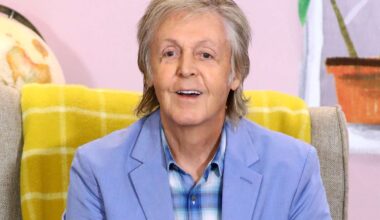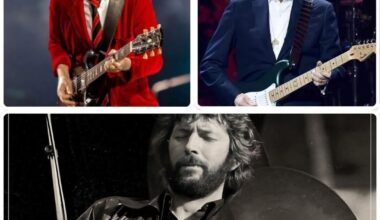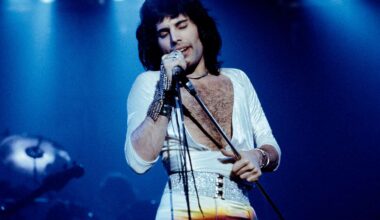Freddie Mercury’s artistic journey was nothing short of legendary, but perhaps no moment captures his passion and genius quite like his final, stunning operatic performance in 1988. That year marked the culmination of a lifelong dream for the Queen frontman—a collaboration with the famed Spanish soprano Montserrat Caballé that not only redefined his career but showcased the full range of his extraordinary talent.
Queen’s 1975 album A Night at the Opera foreshadowed Mercury’s enduring fascination with the operatic form. Yet it was in 1988, with the release of the Barcelona album—a groundbreaking fusion of rock and opera—that Freddie truly fulfilled a dream he had long cherished. The album emerged from Mercury’s admiration for Caballé’s voice and artistry, a sentiment he expressed as early as 1986: “She’s the best,” he declared in an interview.
The collaboration itself seemed almost destined. Rumors spread via Mercury’s record company and friends that he wished to work with the soprano. When the opportunity came, he traveled to Barcelona to meet Caballé and play some of his compositions. She was already a fan of his music, recalling, “My children are truly fans of him and his music too… His music and his voice have always been heard at home.” Inspired by the prospect, she embraced the partnership enthusiastically.
Their first joint creation, the bilingual anthem “Barcelona,” was intended as a theme for the 1992 Summer Olympics, hosted in the city. Mercury worked closely with musician Mike Moran, pushing his vocal range to match Caballé’s soaring soprano. It was a difficult but profoundly rewarding process. Reflecting on the experience, Mercury said, “It means a lot to me because I’ve finally done something I really wanted—to sing with her. To me, it’s blown my mind… I’m just so proud of the fact that I’ve actually done it.”
The emotional impact of the sessions was palpable. Mercury’s personal assistant, Peter Freestone, told The Guardian that Caballé’s first vocal tracks for “Barcelona” brought Mercury to the brink of tears—a rare glimpse into the vulnerability behind the superstar’s persona.
The album Barcelona was released in October 1988, with the title track reaching No. 8 on the UK Singles Chart and featured during the international broadcast of the Olympic Games. Mercury’s health was declining—he had been diagnosed with AIDS the previous year and would sadly pass away in 1991, months before the Games—but his spirit and artistry shone brightly in these final works.
Their live performance at the La Nit festival in Barcelona was a spectacle worthy of their unique partnership. Against a backdrop of orchestral grandeur and fireworks, Mercury and Caballé delivered a powerful, operatic rendition of “Barcelona.” Their chemistry was undeniable as they often locked hands and exchanged meaningful glances. The climax of the show saw Mercury triumphantly extending his arm, smiling warmly before kissing Caballé on the cheek—a touching tribute to his muse and friend.
This final operatic performance was not only a milestone in Mercury’s career but also a testament to his boundless creativity and courage. It revealed a side of the artist that many had yet to witness—a fearless pioneer blending genres and pushing musical boundaries. In doing so, Freddie Mercury redefined what it meant to be a rock star, leaving behind a legacy that continues to inspire musicians and fans worldwide.





